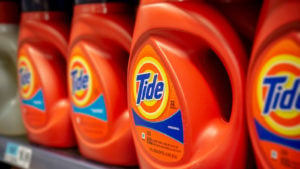The concept of safe stocks arguably couldn’t be timelier. Recently, the technology sector encountered significant turmoil, with many experts questioning the sustained success of artificial intelligence and related innovations. Some of the most popular large-capitalization equities tumbled, which in some sense could bode well for boring but established players.
It’s the common tortoise and the hare theme. While growth-focused tech firms have witnessed blistering returns, the issue is that a significant portion of the returns seen in the equities space have come from only a handful of entities. Such a situation might not last indefinitely.
Further, investors that have gotten used to consistent outsized earnings beats may be getting restless: they want bigger and better. However, with the tech powerhouses already at the top of their game, it’s difficult to extract additional improvements.
On the other hand, boring ideas that quietly go about their business may be relatively undervalued. If sentiment rotates back toward a risk-off profile, the below safe stocks may benefit.
Microsoft (MSFT)

While Microsoft (NASDAQ:MSFT) ranks among the top tech juggernauts, it’s also one of the safe stocks to buy. Offering a diverse range of solutions, from business software to computer hardware to big investments in AI, Microsoft does it all. And yes, MSFT has been looking a bit shaky in recent sessions. However, over the long run, the red ink could be a discounted opportunity.
What stands out regarding MSFT is the underlying consistency. Between the second quarter of last year to Q1 2024, Microsoft posted an average earnings per share of $2.82. This figure beat the collective consensus view of $2.64, yielding an earnings surprise of 7%. In the trailing 12 months (TTM), the tech giant posted EPS of $11.53 on sales of $236.58 billion.
One concern is that MSFT is a pricey with a trailing-year sales premium of 14.19X. However, it’s worth noting that between Q1 2023 to Q1 2024, the market accepted a premium of 12.13X.
More importantly, analysts anticipate a 15.6% jump in sales to $244.93 billion. Fiscal 2025 revenue could rise to $280.07 billion. Therefore, it’s one of the safe stocks you can likely trust.
McDonald’s (MCD)

A fast-food icon, McDonald’s (NYSE:MCD) really needs no introduction. However, investors might be concerned about its status as one of the safe stocks. After all, younger consumers have shown a penchant for health-conscious choices. That doesn’t exactly fit with the Golden Arches’ motif. At the same time, there’s always room for cheap eateries, especially in this economy.
Even with the concerns, McDonald’s has been a consistent performer. Admittedly, the company encountered a slight hiccup in Q1 2024. Still, in the past four quarters, the average EPS came out to $2.96. This handily beat the collective consensus view of $2.79, yielding an earnings surprise of 5.93%. For the TTM period, EPS reached $11.77 on sales of $25.76 billion.
In the past year, the market priced MCD stock at a sales multiple of 8.64X. That’s significant because right now, shares trade hands at 7.29X. Looking out to the end of the year, experts believe EPS may rise 9.15% to $12.17. Revenue could see a bump up of 11.7% to $26.61 billion. In fiscal 2025, sales could see another decent swing to $28.11 billion.
Combined with a forward yield of 2.56%, McDonald’s is one of the safe stocks to buy.
Procter & Gamble (PG)

As one of the biggest names in the consumer products segment, Procter & Gamble (NYSE:PG) makes an organic case for safe stocks. In many ways, you really can’t go wrong with P&G. No, it’s not the most exciting enterprise – not even close. However, the company provides the everyday products that households use. Therefore, P&G enjoys a level of business predictability that other enterprises can only dream about.
Even better, this predictability shows up in the financials. In the past four quarters, the consumer goods giant posted an average EPS of $1.64. This performance beat the average consensus view of $1.54. Further, the underlying average earnings surprise landed at 6.55%. In the TTM period, P&G posted EPS of $6.12 on sales of $84.06 billion.
Right now, shares trade at a sales premium of 4.91X. Relative to the 4.42X that P&G printed in the past year, the premium lift isn’t that bad. Further, context is important. Analysts believe revenue may rise 2.8% to $84.32 billion by year’s end. By fiscal 2025, sales could march up to $87.02 billion, up 3.2%. Combined with a forward yield of 2.38%, PG deserves to be included among safe stocks to buy.
Abbott Laboratories (ABT)

Based in North Chicago, Illinois, Abbott Laboratories (NYSE:ABT) operates in the medical devices industry. Together with its subsidiaries, Abbott discovers, develops, manufactures and sells healthcare products worldwide. It offers significant relevancies in multiple treatment areas. Not to sound cynical but Abbott is also a top provider of diabetes management. With chronic diseases and conditions rising, Abbott will likely “enjoy” robust tailwinds.
As with the other safe stocks on this list, Abbott’s optimistic case doesn’t just revolve around narratives; rather, it consistently and quietly delivers financial results. In the past four quarters, Abbott posted an average EPS of $1.10. Analysts during the period anticipated a consensus view of $1.07. This performance yielded an earnings surprise of 2.43%.
During the TTM period, Abbott posted EPS of $3.21 on sales of $40.33 billion. Enticingly, ABT stock trades hands at 4.45X trailing-year sales. Between the Q1 period of 2023 and 2024, this metric landed at 4.54X. What’s more, analysts believe that sales in fiscal 2024 may rise 4.1% to $41.74 billion. And fiscal 2025 could see the top line expand to $44.78 billion.
Add in a forward yield of 2.1% and you have one of the safe stocks to buy.
Johnson Controls (JCI)

Falling under the build products and equipment industry, Johnson Controls (NYSE:JCI) engages in engineering, manufacturing, commissioning and retrofitting building products and systems. It’s hardly what you call a riveting business, focusing on rather mundane services such as heating, ventilation and building management. Still, as society normalizes from the Covid-19 pandemic, entities like Johnson Controls could steadily march higher.
Admittedly, JCI presents a slightly riskier idea among safe stocks. In the past four quarters, the company posted an average EPS of 84 cents. However, this figure fell just short of the consensus view of 85 cents. What triggered the red ink was an earnings miss in Q3, with JCI falling roughly 4% below expectations. Still, its Q1 2024 performance was relatively solid, thus encouraging onlookers.
In the TTM period, Johnson Controls posted EPS of $2.47 on sales of $26.83 billion. Covering experts see EPS rising 2.29% to $3.58 by year’s end. Also, revenue could march up 3.3% to $27.68 billion. In the following year, EPS could gain robustly to $4.08 on sales of $29.01 billion.
Thanks to a forward yield of 2.12%, JCI is another quality idea for safe stocks to buy.
Public Storage (PSA)

Structured as a real estate investment trust or REIT, Public Storage (NYSE:PSA) acquires, develops, owns and operates self-storage facilities. Fundamentally, the company could benefit from broader demographic trends. Mainly, baby boomers are looking to downsize while keeping heirlooms for the next generation. That suits PSA’s business model perfectly. Also, younger people may take advantage of self-storage to trade down themselves due to the high cost of rent.
In the past four quarters, Public Storage posted an average EPS of $2.75. This tally beat the collective consensus view of $2.73. However, the REIT did incur a sizable earnings miss in Q4. Nevertheless, because of the robust performance overall in the past year, the earnings surprise came out to 0.83%. During the TTM period, the entity posted EPS of $11 on revenue of $4.61 billion.
Interestingly, PSA stock trades at 11.76X sales. In the past year, this metric landed at 11.73X; thus, the current premium isn’t that high relative to what the market readily accepts. Plus, analysts are looking for growth of 3.9% in the top line to $4.69 billion.
Add in the generous forward yield of 3.87% and PSA looks more attractive.
Waste Management (WM)

When it comes to safe stocks to buy, it doesn’t get much safer than Waste Management (NYSE:WM). Good economy or not, people are always going to throw stuff away. Well, based on the laws of physics, that stuff has to go somewhere – typically in a landfill. So, WM benefits from a permanently relevant narrative.
Even better, the company is delivering the goods because why wouldn’t it? Again, the trash has to go somewhere. In the past four quarters, Waste posted an average EPS of $1.66. This figure beat the consensus view of $1.55, resulting in an earnings surprise of 7.43%. Notably, Q4 2023 and Q1 2024 saw an average beat of 15.2%.
In the TTM period, WM posted EPS of $6.12 on revenue of $20.69 billion. By year’s end, analysts project that EPS may shoot up 18.26% to $7.32. On the top line, sales may expand by 5.6% to $21.58 billion. In fiscal 2025, earnings may rise to $8.08 per share on revenue of $23.36 billion.
Lastly, it offers a forward yield of 1.34%. All in all, WM should help keep your portfolio on the straight and narrow.
On the date of publication, Josh Enomoto did not have (either directly or indirectly) any positions in the securities mentioned in this article. The opinions expressed in this article are those of the writer, subject to the InvestorPlace.com Publishing Guidelines.
A former senior business analyst for Sony Electronics, Josh Enomoto has helped broker major contracts with Fortune Global 500 companies. Over the past several years, he has delivered unique, critical insights for the investment markets, as well as various other industries including legal, construction management, and healthcare. Tweet him at @EnomotoMedia.








